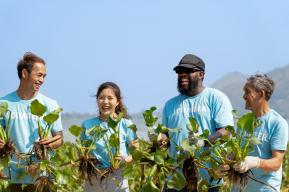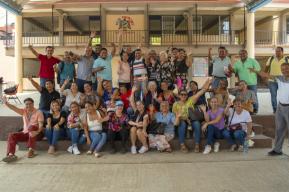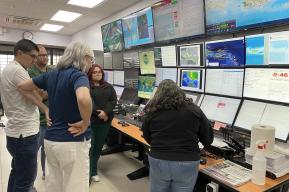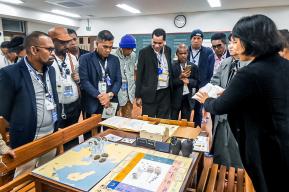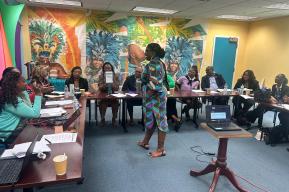News
Nature-based Solutions for reducing disaster risks: African perspective
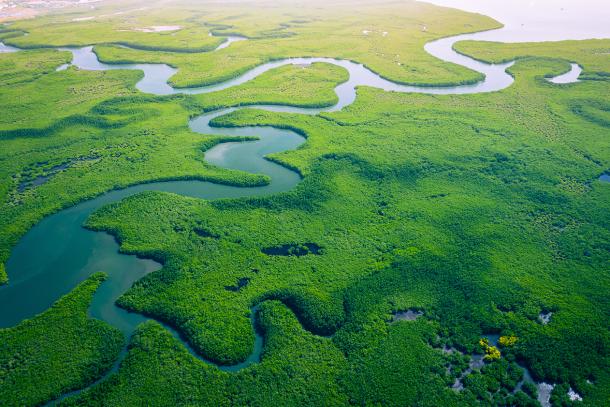
Representatives from 13 African countries - Algeria, Ethiopia, Kenya, Liberia, Madagascar, Mauritius, Namibia, Nigeria, Rwanda, South Africa, Tunisia, Uganda, and United Republic of Tanzania - exchanged views, experiences and lessons learnt on Nature-based Solutions for disaster risk reduction in Africa. The workshop created a space for these representatives, including government officials, senior scientists and academics, decision-makers, private sector experts, and consultants, to share knowledge and good practices across the African region on Nature-based Solutions.
Presented projects and initiatives highlighted the deployment of ecosystem-based interventions at community level to reduce climate risks and promote nature conservation and management. Moreover, the workshop addressed the potential for promoting the coordinated adoption of Nature-based Solutions for disaster risk reduction in the focus region. In this context, possible barriers, and facilitators for wider implementation of solutions were examined. In particular, the key institutional, policy and technical challenges when it came to the implementation of Nature-based Solutions, were underlined. Finally, recommendations were presented on how to overcome the gaps in the region.
Country representatives had a chance to share their perspectives and experiences on Nature-based Solutions for disaster risk reduction. The participants recognized common gaps and barriers to implementing Nature-based Solutions across countries.
The coordinator of the EU-funded project OPERANDUM (Open-air laboratories for nature-based solutions to manage hydro-meteorological risks) provided key insights into challenges and lessons learned based on case studies in rural areas of European regions. The discussions highlighted the value of cross-regional sharing of approaches and examples and addressed the potential for replicating and adapting the presented concepts and paradigms.
Based on two roundtables, parallel sessions and an online survey on the regional context of Nature-based Solutions, technical, institutional and policy gaps and needs were identified and recommendations formulated for promoting the uptake of Nature-based Solutions for disaster and climate change adaptation in the region.
The results from discussions of the workshop will be used to produce a shared roadmap for the increased and sustainable uptake of Nature-based Solutions for disaster risk reduction in Africa. More specifically for:
- institutional strengthening and policy strengthening
- capacity support, unpacking Nature-based Solutions and illustrating in which contexts they could be implemented,
- providing a learning hub and best practices, and
- disseminating Nature-based Solutions across the continent.
The roadmap will provide practical guidance for the implementation of Nature-based Solutions, through a series of recommendations tailored to the regional context. The results may also be used to derive overarching recommendations on fostering Nature-based Solutions at the global level.
Following the completion of this successful workshop, UNESCO’s Disaster Risk Reduction Team and the UNESCO Regional Office in Eastern Africa aim at launching a collection of good practices derived from the workshop. An analysis of Nature-based Solutions related policies will also strengthen the capacity of the Member States in the implementation of Nature-based Solutions.
To achieve a higher reach in capacity building, UNESCO will have consultations with other UN regional organizations, UNDRR, UNEP and IUCN and design activities aiming to increase the resilience of the African communities using ecosystem services.





